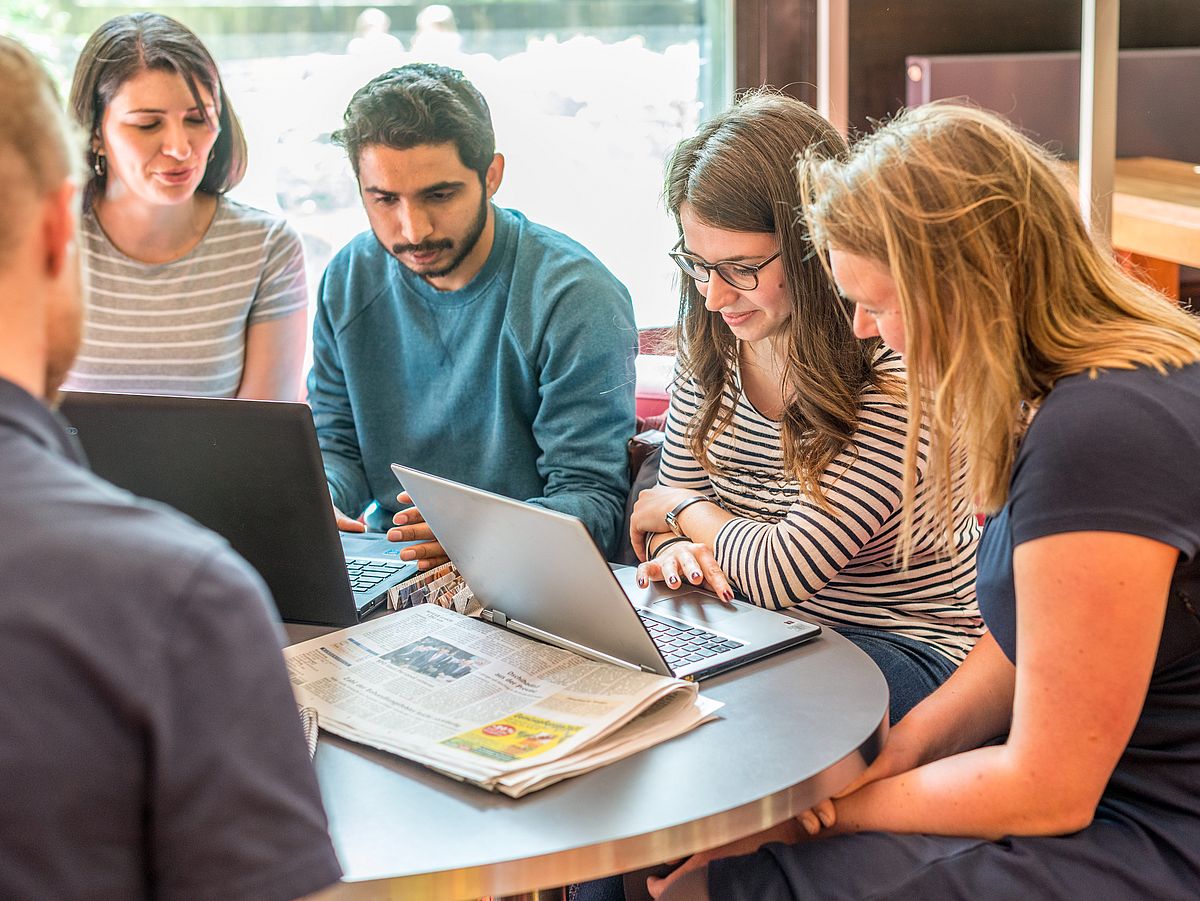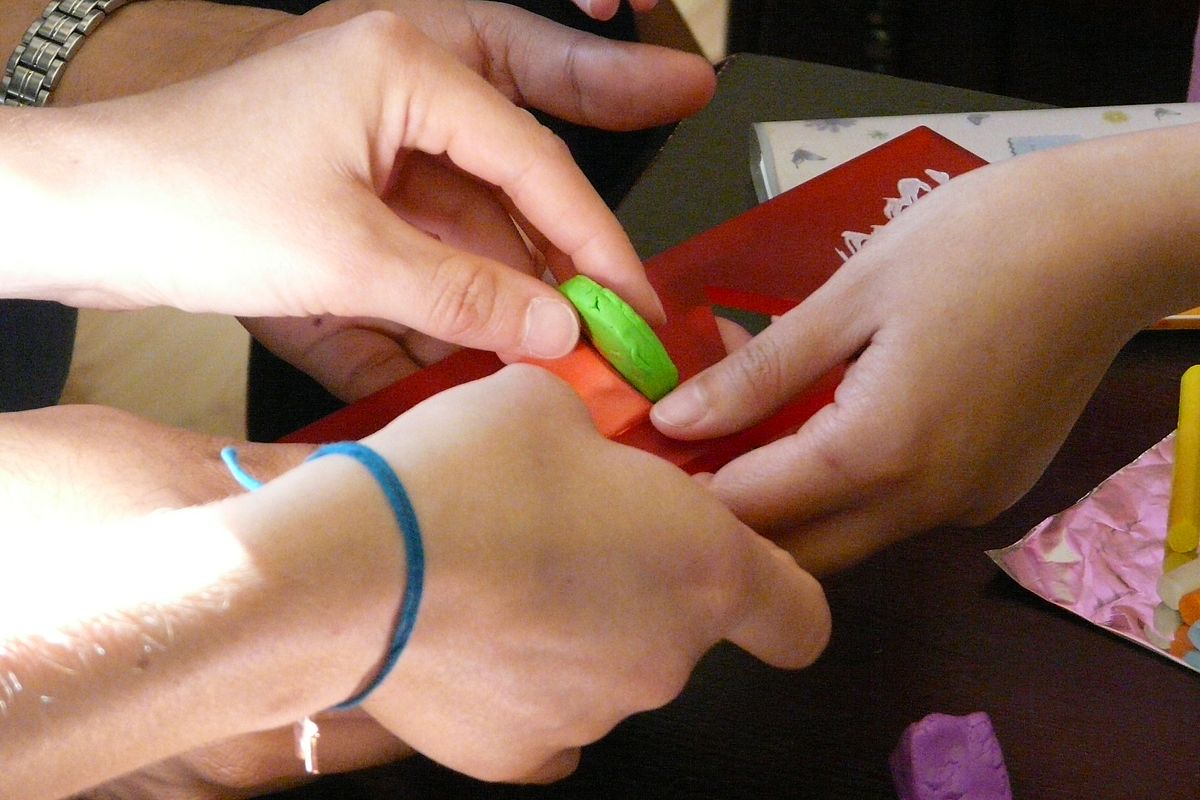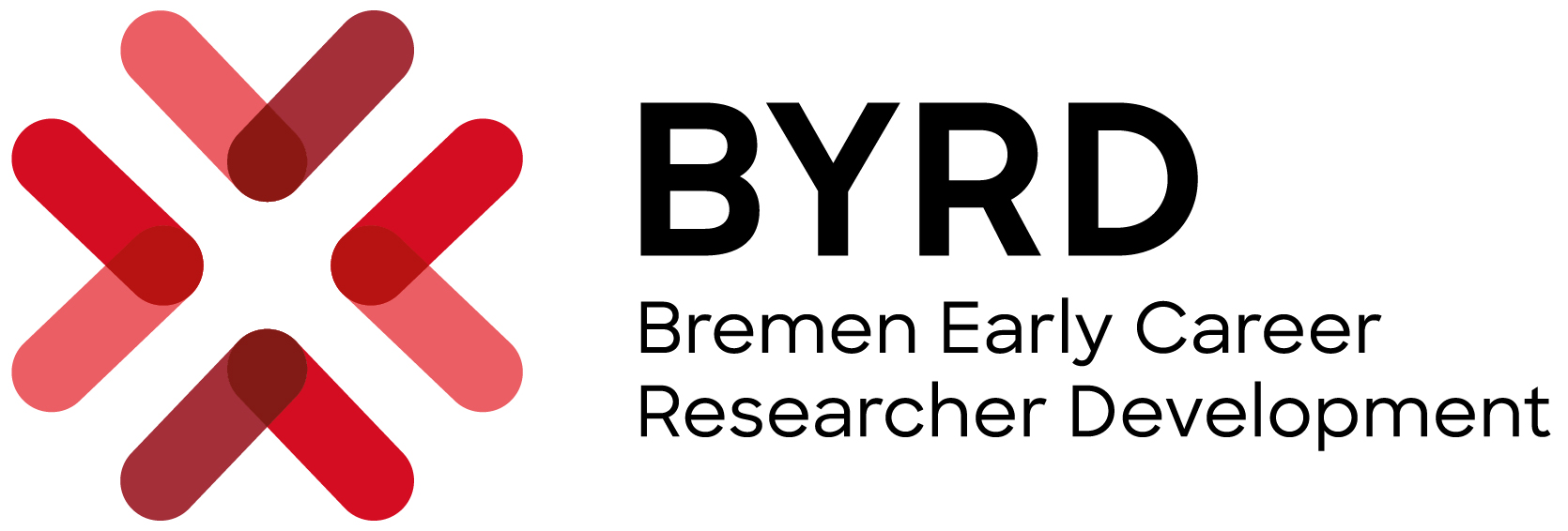Doc-Networks

Sharing professional and personal experiences and ideas with other doctoral reseachers can be very motivational. Hence, BYRD supports doc-networks that are formed on the initiative of doctoral candidates themselves. They create their own space for reciprocal peer support. Doc-Networks facilitate and enhance PhD research work by providing a source of peer counseling and advice, social inclusion and accompanying academic activities. The individual networks are dedicated to an overarching theme (topic or method) that links together the research interests and projects of its members. Currently, there are nine active networks with 90 members in total.
SPIN is an interdisciplinary network of doctoral candidates that relate to sustainability in their research. We meet about each 6 weeks and decide on a rolling basis on the next topic and date. The goal is to discuss both sustainability as research topic and in our research processes.
Sustainable research process topics include but are not limited to: the dissertation process as a whole, peer mentoring for current struggles, discussion of career paths or writing sessions. The goal here is to establish peer support and motivate and learn from each other along the process. Second, topics covering our research objects are the presentation and discussion of research projects, methodological sessions, inform about relevant other networks, conferences and workshops that are related to the topic of sustainability. The goal here is to benefit from the different perspectives we bring to the network.
The network is open to all interested researchers, please get in touch, we look forward to you!
Spokeswoman: Susanna Bolz
“AI meets Qualitative Methods (AIQM)” is an interdisciplinary network of PhD candidates and postdoctoral researchers dedicated to exploring the use of artificial intelligence in qualitative research.
In our regular meetings, we exchange ideas on methodological, technical, and ethical questions, test emerging tools, reflect on our experiences, and critically discuss how AI can be meaningfully applied throughout the entire research and writing process.
Our goal is to build competencies in the responsible use of AI, learn with and from each other, and develop a solid knowledge base. In doing so, we aim not only to advance our own research but also to support fellow researchers at the University of Bremen and beyond—through open formats, reading groups, workshops, and publications.
The network is open to anyone with a strong interest in the intersection of qualitative research and AI. New members are always welcome! For more information, feel free to contact Veronika Graceva or Tim-Christoph Engelhardt .
The LiLiTe - Linguistics, Literature, Teaching network is open to all doctoral candidates in Faculty 10, making it a highly interdisciplinary platform. We exchange ideas on methods, goals, research projects, and soft skills - as well as anything else on our minds. Members are invited to actively contribute to the network. We have regular meetings that provide a space to write and exchange ideas. There is also a colloquium once a semester where we can present and discuss our research, as well as get feedback on it. From time to time we organize workshops on relevant and desired content. The main goal of the network is to support one another and learn together.
Speakers: Stephanie Bergmann and Megan Dwinger
Simply the BEST is a WiMi/Doctoral Network of the Bremer Energy Systems Research Center (BEST, www.uni-bremen.de/best/ ), a group from the University of Bremen focused on energy systems research. Our goal is to create a scientific hub for interdisciplinary collaboration in the field of energy, emphasizing the impact on the economy and society. We envision a climate-neutral future and strive to develop sustainable energy transformation pathways considering social, technical, ecological, economic and political aspects.
We invite you to be part of the BEST WiMi Network, where we will be organizing networking opportunities and social events, offering each other research support and collaboration, and giving updates on exciting energy transition events.
Speakers: Tom Warendorf and Isaac Vázquez
The organising committee of the “ScienceChat” consists of eight PhD students from four different ecological working groups of the University of Bremen. By meeting regularly for our seminar and discussion series, we seek to improve collaboration between our working groups, and in particular of the PhD students. The field of ecology is very diverse and offers many different research approaches, but there are also universal concepts that can be applied independent of the individual fields of expertise. This exchange of experience and mutual support has so far been very inspiring and we want to develop it further in the future.
The “ScienceChat” meets every week and invites anyone interested in ecology to attend and participate. It is aimed at PhD students in ecology but is also open to Master’s students or Post-docs, as well as to interested researchers in related fields such as the geo-sciences. We present and discuss recent findings and new methods as well as questions and problems we encounter in our research.
Anyone interested in the “ScienceChat” is invited to join our Stud.IP Gruppe (“Science Chat”) and our mailing list!
Spokesperson: Elisabeth Riedel
The network consists of early career scientists whose PhD projects are embedded within the context of (racism) critical migration research and examine educational questions from the perspective of people of color. The topics concern ethnical, cultural and racist exclusion in structural and social power constellations. Apart from support in empirical evaluation, the network also offers a panel to discuss theoretical and methodological approaches.
Speakers: Saman A. Sarabi and Chripa Schneller.
The Qualitative Research Workshop at the IPP (Institute for Public Health and Nursing Research) offers a continuous professional context for students, doctoral students, researchers from the IPP, and also for other interested people who search for collegial advice and collaboration for their research projects. Topics that can be included in the joint work may be research interests, research issues, data excerpts, own texts, or more. Also, methodological as well as ethical questions concerning the research topics are being discussed. An orientation towards the qualitative and interpretative research paradigm is the foundation for the activities in the workshop.
The network regulary meets on the second Monday of each month, at Grazer Straße 4, room 1010 at 15:30.
Information and contact: Valeska Stephanow or Marianne Rahner
The doc-network unites young historians who conduct research on different epochs (antiquity, middle ages, modern era, contemporary history) and geographical regions (Europe, Asia, North, Central and South America). In order to bring those heterogeneous topics and perspectives into a dialogue, the exchange and collaboration focus on methodological and theoretical questions. Here, the shared center of attention lies on approaches from the global and transnational history as well as the younger theoretical debates, initiated by the Spatial Turn.
Speakers: Sophia Gröschel and Kevin-Niklas Breu
The Early Career Researcher Academy (ECRA) is the union of doctoral researchers and postdocs from the Leibniz ScienceCampus Digital Public Health (LSC DiPH) Bremen. The ECRA is open to doctoral and postdocs from both the LSC DiPH and associated institutions. Through the multidisciplinary approach of the LSC DiPH, the ECRA promotes the exchange and cooperation between young researchers from different disciplines. The ECRA independently organizes retreats and workshops, invites researchers to research stays in Bremen, or finances its members' own conference participation.
Spokeswomen: Laura Maaß

Establishing a Doc-Network
Doc-networks are formed on the initiative of doctoral candidates themselves. They create their own space for reciprocal peer support. Doc-Networks facilitate and enhance PhD research work by providing a source of peer counseling and advice, social inclusion and accompanying academic activities. The individual networks are dedicated to an overarching theme (topic or method) that links together the research interests and projects of its members.
What does a network do for me?
Doc-Networks have many advantages:
- Peer counseling: Doc-Networks enable the reciprocal exchange of experience and work techniques (methods and topics). Participants benefit from such tips and have a forum in which they can discuss their research work.
- Social inclusion: You are part of a group. This presents a welcome and constructive interlude in the daily grind of doctoral research.
- Coordination, knowledge, and motivation: You can engage in (disciplinary and interdisciplinary) discourse and the various activities made available through the network serve to boost motivation.
- Accompanying academic activity: The network provides a source of interdisciplinary discourse beyond your specific field or university.
What are the requirements for creating a Doc-Network?
- Descriptive title/ underlying theme: The theme covered by the network is best illustrated via a descriptive title that provides a visible platform and facilitates finding other members. The title also fixes the frame as well as the thematic and methodological thrust of the network, making it easier for others to see a common reference point to their research.
- Composition of members: Ideally, a network comprises 6 to 15 members, of whom one or two researchers act as contact- and spokespersons. Postdocs and Masters’ students may participate in the network , however, the doctoral researchers should be in the majority.
- Written concept describing the thematic and methodological frame of the network, as well as how the individual dissertation topics fit in with these overarching themes (3-4 pages).
- Brief introductory text: The network provides a brief text describing the main features that will be published on this website.
What makes a successful network?
- Active networks live from their members. Commitment, motivation and personal success are important factors.
- Work in the network – learn from the network: The overarching theme or frame presents the possibility to work towards mutual aims. For example: Participation at scholarly meetings, invitations to guest lecturers or even interdisciplinary publications and projects. A cross-disciplinary and personal exchange of experiences (stumbling blocks, time sinks, good research methods, or new developments and stimuli) is also an important factor.
- Regular participation in network meeting is vital for its sucess.
- Additional activities: Every network develops additional activities, e.g. the organization of special lectures with external speakers, joint contributions to conferences or invitations to alumni for orientation to future careers.
What funding is available to networks?
- Active Networks can apply for up to 2500 € p.a. for the funding of any individual activities they initiate. Among other things, the money can be used to cover the fees of speakers, the organization of workshops and scholarly meetings and printing costs for co-authored publications. The funding can be spread over several different activities and applications can be submitted any time.
- Transferable skills/Kick-off workshop: For every new network, BYRD organises and funds a workshop according to the specific needs of the members (e.g. time management, presentation skills, moderation).
- BYRD will introduce every new Doc-Network on its web platform and assist in finding new members.
What else could materialize?
- A Doc-Network enables you to join in academic discourse with researchers in your field – also after having completed the PhD process. You are able to establish interdisciplinary contacts and acquire insights and competences beyond the boundaries of your own PhD project.
- Co-authored publications: Via co-authored publications you can increase your standing in the scientific community. Together with the group or part of it, you can publish joint articles, project results or initiate scholarly meetings.
- Interesting inclusion in your résumé: When submitting job applications you can refer to your activities and achievements in the Doc-Network, providing an interesting addition to your other qualifications.

